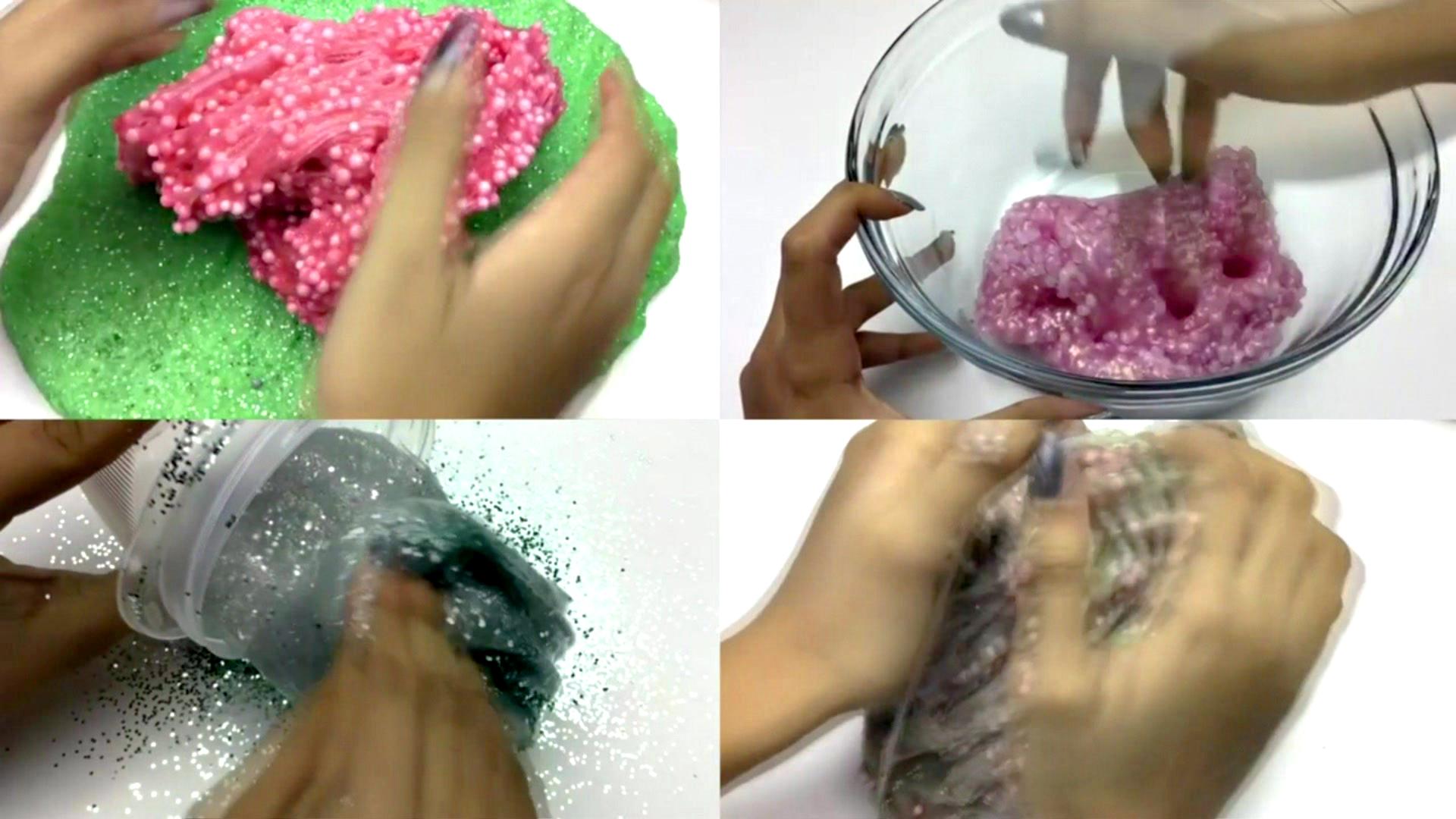Slime - it's a slippery business
- Published
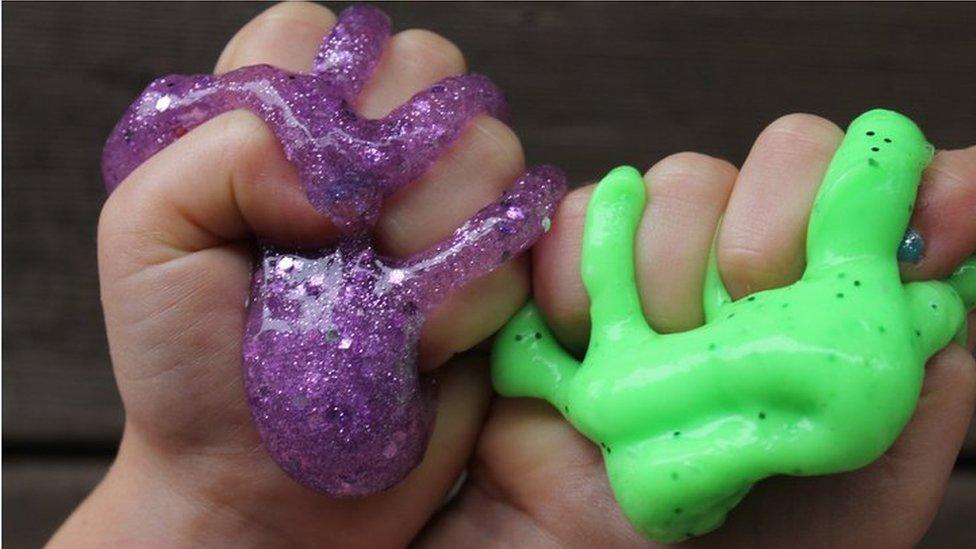
How long will the slime craze last?
Slime is serious business, and shows no sign of losing its slippery appeal among children.
YouTube slime "crafters" have gained celebrity status, with some gaining hundreds of thousands of online followers.
That's led to significant growth for suppliers, including Blackburn-based Zimpli Kids.
It has moved to a larger factory premises to keep up with demand and now supplies powdered slime products around the world.
Spokesman Paul Jackson says the growth has been astronomical.
"In 2016 we grew over 300%, in 2017 we grew 60%. We're not quite to the end of 2018 yet but we're up about 35%," he says.
'So influential'
The Zimpli Kids slime factory is full of vast crates of brightly coloured packets of powder. They are stacked five-high, and the production floor is full of huge silver mixing cauldrons and machines that funnel the powders into packets.
It's a long way from the YouTubers mixing up slimes in their kitchens. But it is still YouTube that is driving their sales.
"YouTube is to children what TV was five years ago," says Jackson. "It is the most visited website in the world for children and it is so influential. If something trends on YouTube, it sells at retail.
"We work with over a thousand YouTubers. We supply them with our slime powder and they make their own videos," he said.
The company says its two most popular products have clocked up more than 4.5 billion views on YouTube thanks to reviews from influencers. It would take a global advertising campaign to even begin to approach that number through more traditional platforms.
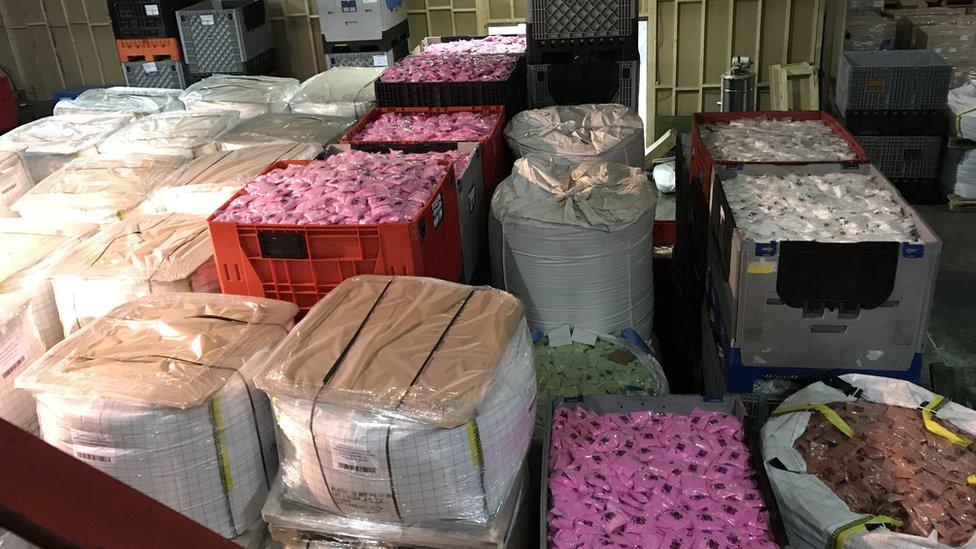
Slime ready to ship at Zimpli Kids' plant in Blackburn
Businesses may use influencers to market their slime products, but some of those influencers are launching their own slime-based businesses.
Izzy Suss is just 12, but she has set up Slime's On The Rise, an online business that manufactures and sells different slimes. She also runs slime parties where she teaches other children how to make and customise their own slimes at home.
Part of her success is down to the 5,000 followers she has gained on Instagram, where slime is in demand.
"I was just selling it at school and then I found Etsy, which is a website where you can sell," she says.
"Instagram has really helped me grow my business, and then posting all the different videos of slimes on there has really helped. It's just really easy and fun to play with, and it's really stress relieving. It's a really simple but really effective toy," she said.
Worrying evidence
Both Zimpli Kids and Izzy say their products are made with safe ingredients, but not every manufacturer can make that claim.
Whenever a new craze takes off there are firms that quickly begin production in order to cash in, increasing the risk that safety standards won't be strictly adhered to.
Consumer champion Which? recently tested 13 slime products from a range of retailers and found that almost half failed the EU safety standard limit for the chemical boron, which has been shown to potentially affect fertility.
Nikki Stopford, director of research and publishing at Which?, says: "We've found more worrying evidence that children could be put at risk by these toys.
"Parents should have confidence that the products that they buy for their children will be safe, but our latest investigation has uncovered harmful products being sold even by big retailers.
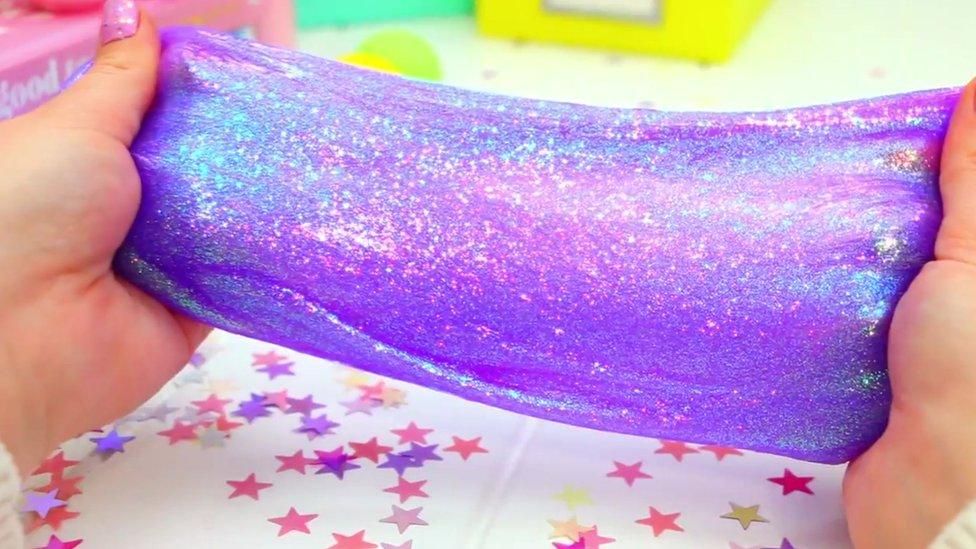
There are concerns about the safety of some slimes
"Again, we're calling on manufacturers to stop making unsafe products, and for the government and retailers to step up and do a much better job of ensuring only safe products get into people's homes and into the hands of children," Ms Stopford said.
Slimy success
Despite such concerns, there's no evidence that the slime craze is cooling.
Search the web for "how to make slime" and there are currently 181 million results. Visit YouTube or Instagram and slime-related content is being added every few minutes.
And visit any toy shop and there are piles of ingredients and ready-made slimes piled up by the counters.
But Zimpli Kids' Paul Jackson says he knows it's unlikely to keep selling like this forever.
"Slime will stop being so popular, nothing trends forever," he says. "Will our slime sales drop? Yes, they will.
"I think we'll just capitalise on the growth and we'll be realistic. Slime will trend less than it is now but I don't think it will ever go away entirely.
"It will slow down but we will still be in a very positive place."
But for the moment, at least, slime remains a great British success story.
- Published13 December 2018
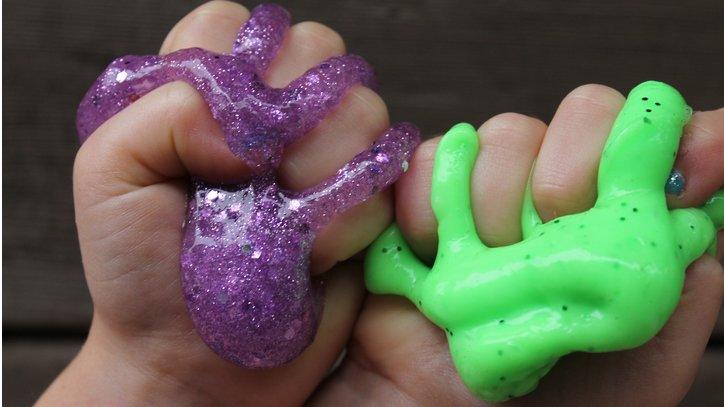
- Published15 June 2018
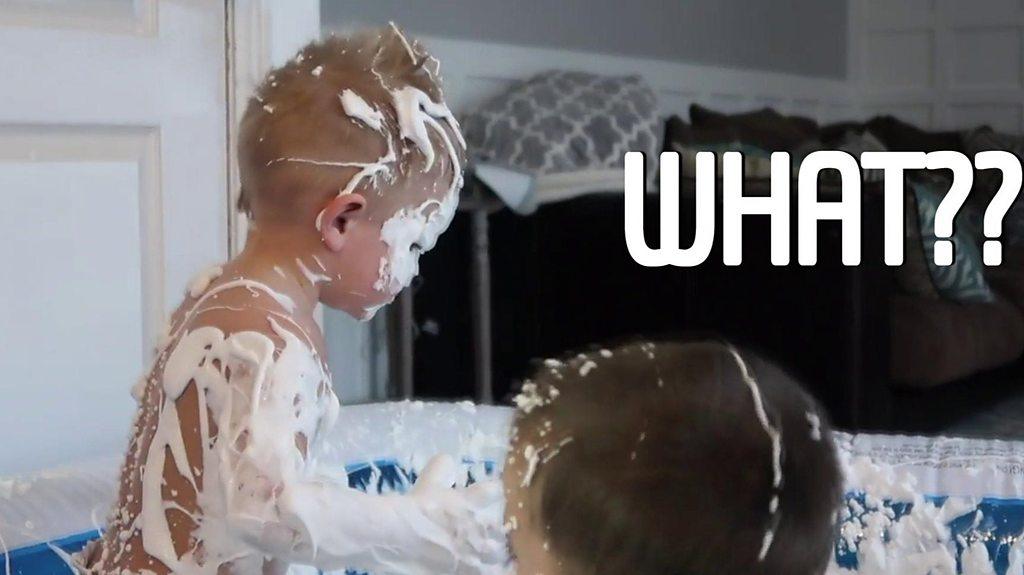
- Published22 January 2018
